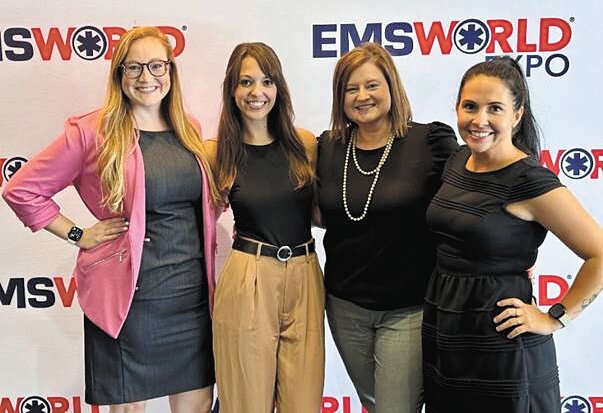
Representatives from the nationally recognized Mobile Integrated Health program had the opportunity late last month to speak at two national conferences.
MIH has programs such as Project Swaddle and Project Bundle, that support pregnant mothers and their newborn babies, as well as a chronic disease program that helps elderly Montgomery County residents age safely in place.
On Sept. 22, Lindsey Cord, a registered nurse, and Olyvia Wood, a social worker, presented at the EMS World Expo in New Orleans, which is the largest EMS-dedicated event in the world with thousands of attendees from more than 50 countries.
Cord and Wood had the opportunity to present “Advanced Community Paramedicine Team Building – Diversifying Your Practitioners” which shares how the Crawfordsville Fire Department MIH team has expanded its roles alongside the community paramedics to use a comprehensive approach to patient care. The addition of these roles has helped to bridge the gap within care through education and better access to services and resources.
A week later, on Sept. 28, Darren Forman, firefighter/paramedic and Samantha Swearingen, project manager presented at Radically Rural Annual Summit in Keene, New Hampshire. The summit focuses on building networks of engaged and innovative people who want to take action and provide resources to their small communities.
Forman and Swearingen had the opportunity to present “Folks Helping Folks: Using the Community Paramedicine Model to Support a Community’s Unique Needs.” This presentation focused on how Project Swaddle is used in tailoring a community paramedicine model to better fill the needs and bridge the gaps left by medical deserts, which are areas lacking healthcare either generally or in specialty areas.
“Our programs are truly innovative and we’re grateful for the opportunity to share what we’ve done,” said Division Chief Paul Miller. “We have had the ability to impact the lives of many in our own community and by sharing what we’re doing, we are creating the ability for others to positively impact their communities too.”